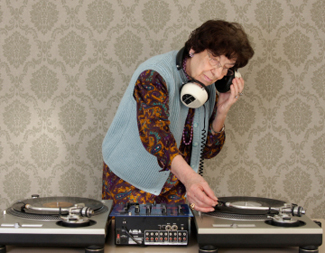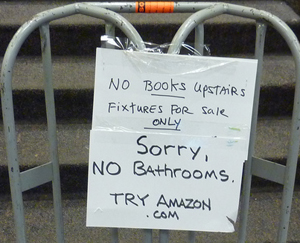 Colin Holter posed a question in his post this morning on NewMusicBox that I’d like to consider here as well:
Colin Holter posed a question in his post this morning on NewMusicBox that I’d like to consider here as well:
We can agree that it is thought that the patrons of classical music in the United States are old and getting older. That’s the conventional wisdom. So let me ask you this: Have you ever read a piece of serious writing on the attitudes of the elderly toward classical music? If, as is often assumed, the over-70 crowd exerts a powerful influence over the institutions that deliver classical music to us, shouldn’t a concerned musicologist work some tightly focused ethnography on them?
Considering all the marketing hours and conference panels that performing arts organizations seem to devote to stalking the younger non/rare/sometimes-attender, the lack of any session or article or study in my memory focused on this exact topic left my mouth hanging open. Has anyone actually investigated this or looked into how to attract more people in the 65+ demographic? We know they’re out there and living longer lives. What do they value about the experience and what would encourage more of them to participate in it?
These are not perfect questions, I realize, but the fact that no one seems to be asking them much at all makes me curious. In what other market would we try and sell an experience to a rarely interested buyer while simultaneously overlooking those demographics that have demonstrated a high affinity for it? Good lord, if the concert halls became known as the hot spot in town for the in-bed-by-ten set, we probably couldn’t keep the ironically attending youngsters out of the lobby anyway. Two birds!
When I brought this up to my friend and colleague Jim Holt, he pointed me towards this video and suggested (using his best David Letterman impression) that “a version of that video, but with 80+ year olds, would be like a license to print money.”
I think he just might be on to something there.

